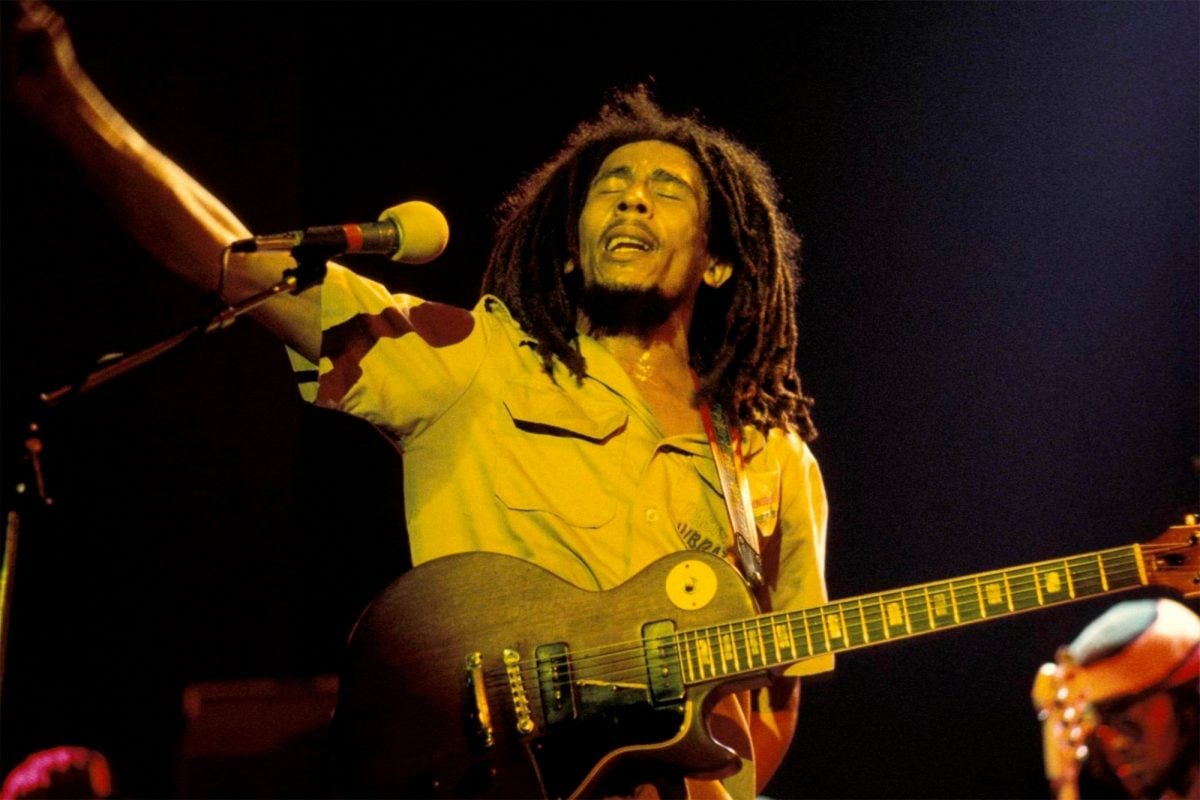Bob Marley Film Premiere Stirs Memories Of Reggae Icon’s Struggles With Discrimination

Head of the Reggae Studies Unit at the University of the West Indies, Dr. Sonjah Stanley Niaah, says she was distressed at the paradoxical sight of those Rastafarians deem ‘Babylonians’ gallivanting on the red carpet at the premiere of the Bob Marley: One Love biopic.
Niaah, who found herself moved to tears during the film’s debut, highlighted the irony of those who once deemed Marley as “Dutty Rasta”, now prancing around and revelling in the glory of a man they had previously shunned.
“That was part of my distress. The irony of ‘Babylon’ up on red carpet sipping in the glory of what they once shunned. So much things to say my sister,” she noted on Instagram, in response to a commenter who pointed out that at the film’s premiere on Tuesday evening, “there was no equity how they treated my Rastafari family” and that “if Bob Marley was alive, it would be held in Trench Town for free, for the people”.
The commenter’s notation had come after Dr. Stanley Niaah shared a video snippet from her panel discussion on Television Jamaica’s All Angles on Wednesday night, where she, in calling for young people to watch the biopic, had pointed out that it was an opportunity for Jamaicans to be inspired and young artists to emulate Marley and refrain from prejudging people.
During All Angles on Wednesday night, Dr Niaah, who is an esteemed authority on Reggae and Rastafarian culture, had explained why some aspects of the film’s premiere had become a source of emotional turmoil for her, noting that even as persons were now participating in the celebration of Bob Marley’s life and achievements, many Rastafarians were still facing the discrimination as Bob did back then.
“For me I think there are three different components of why I cried. One is the slice of Bob Marley’s life that they chose to enter for this film and then to abstract, to show us the sort of comprehensive and holistic sense of this man. That entry point for me was so poignant, you know it’s the same Jamaica, nuttn nuh change. And we are here at this time struggling in the same struggle,” she had said.
“That made me made me very sad. I came out of that movie concluding that the movie was well done; everything was well-organised in terms of the premiere; but that film left me distressed as a Jamaican that love Jamaica… Two days before, I was on this meditation that lest we forget, Bob Marley was a Rastaman dat dem call ‘Dutty Rasta’. This is the man from humble beginnings, by his own bootstraps, his own mediation – a meditation on peace; a meditation on Rastafari messages,” she had noted.
She added: “Through those messages reached an entire globe. So there is something really special for me as a Jamaican watching that film, and I think most Jamaicans, whether you are at home or in the diaspora, you are gonna feel real powerful emotions watching that film”.
The discussion about discrimination against Bob Marley and Rastafarians had resurfaced on Wednesday on Television Jamaica when Smile Jamaica programme host Simone Clarke Cooper pointed out how ironic it was that Bob was treated poorly in Jamaica, in many cases whilst alive, and was now the most celebrated person from the island.
“I remember Neville Willoughby telling me that Bob used to come here yeah and he couldn’t come inside. Like he would stand at the window at RJR in the music library, because we just did not accept Rasta at that time. And so when I look at what’s going on now I’m like my mind is blown,” Clarke Cooper had told Ziggy during the programme.
In February 2020, noted Attorney-at-law Bert Samuels had blasted persons he described as “hypocrites and parasites” whom he said were leeching on Bob Marley’s fame.
“I come from a time when reggae music couldn’t be played on a Sunday and Bob Marley was seen by society, by uptown people, and even his own family, as a ‘dutty Rasta bwoy smoking ganja’. When you read Bob and Me: The Real Bob Marley Story, a book by Don Taylor, you see in it how he went to an uncle, or a cousin, who was a lawyer called Marley in Duke Street… and when they asked what he was there for, he told them he was looking some money to help press some records. And when his relative heard that, the next him know dem called the police. He had to leave the office,” Samuels had told The Gleaner.
Ripping further into the pretenders, Samuels said they had condemned reggae artistes and Rastafarians “as the scum of the Jamaican society, until Bob Marley was accepted outside of Jamaica”.
“And the hypocrites and parasites have now come to embrace him. And they are indeed parasites, because if you resent something, why are you now living off it? Why do you want it to be your brand? Bob Marley was rejected as a dutty Rasta boy when he was growing up. And that’s why some of his lyrics are so bitter,” Samuels had said.
